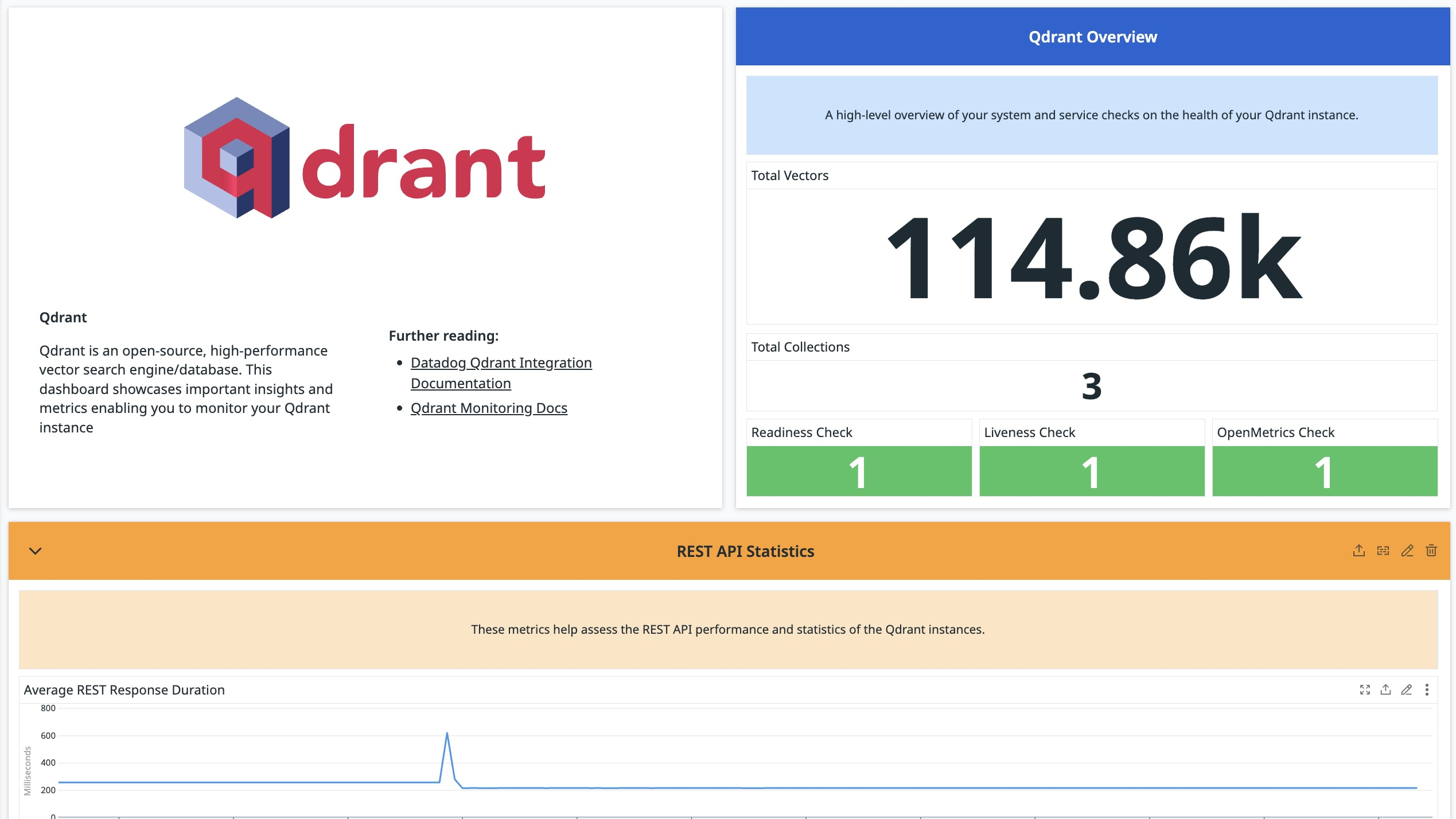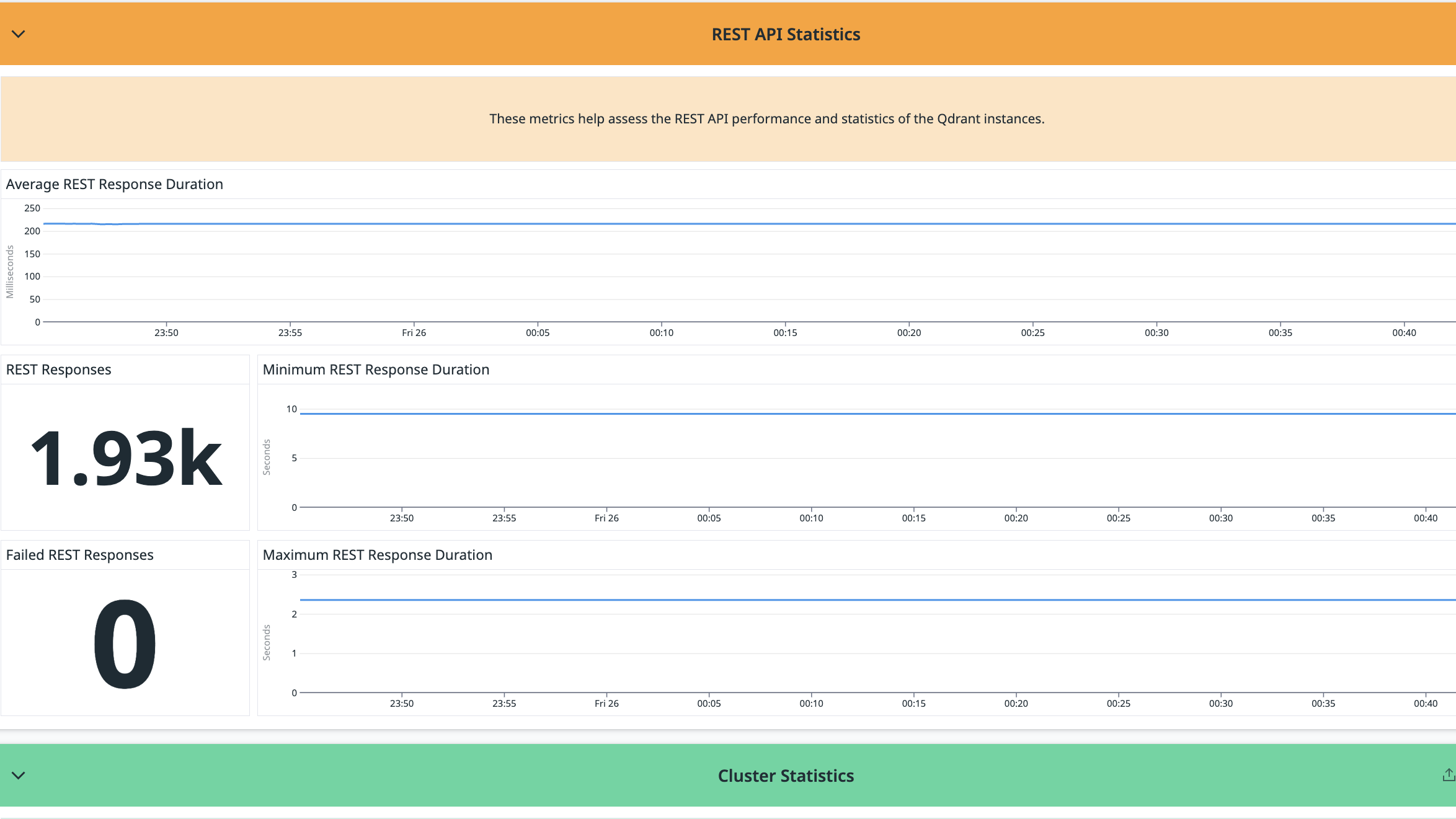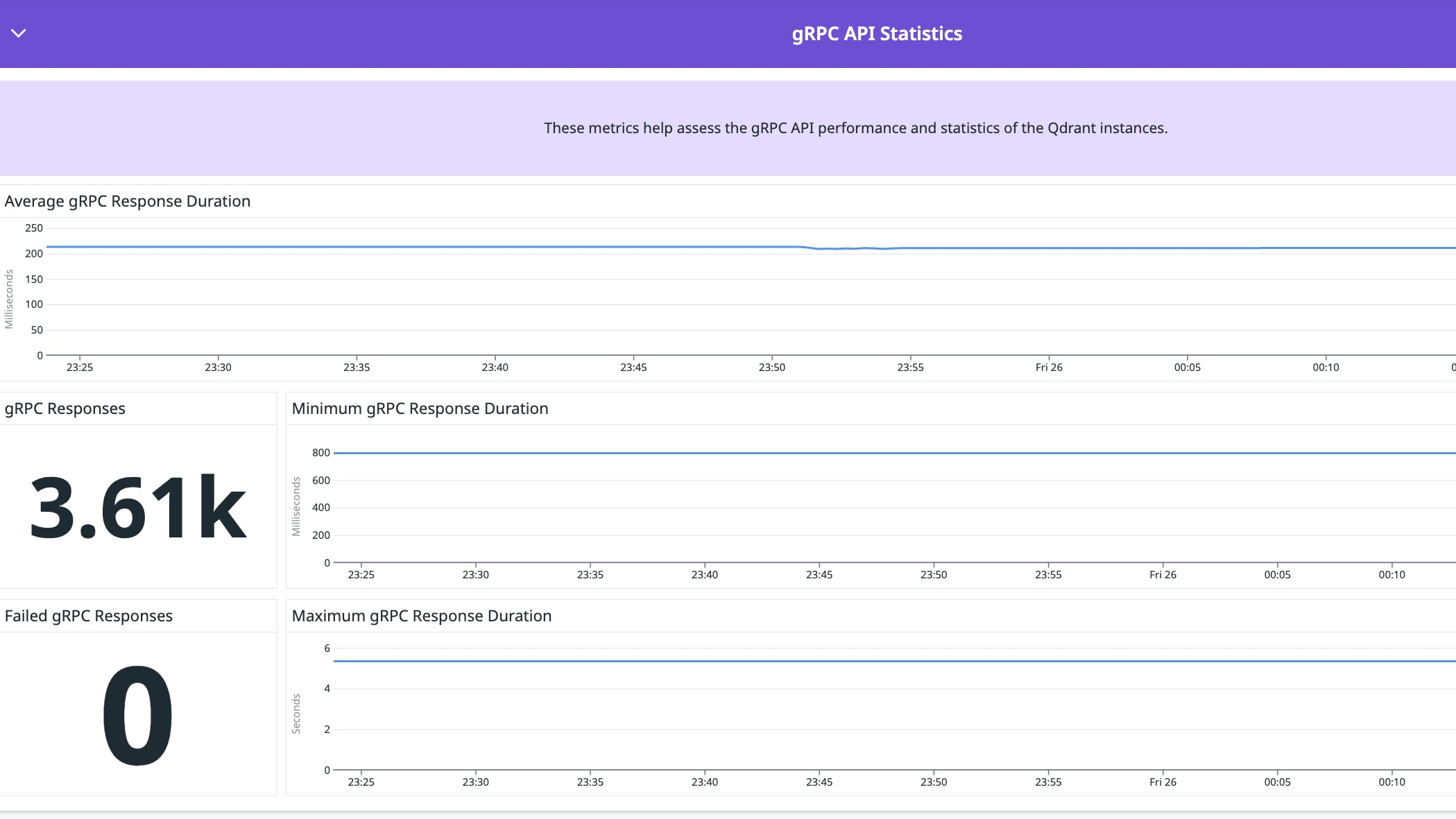- Essentials
- Getting Started
- Agent
- API
- APM Tracing
- Containers
- Dashboards
- Database Monitoring
- Datadog
- Datadog Site
- DevSecOps
- Incident Management
- Integrations
- Internal Developer Portal
- Logs
- Monitors
- Notebooks
- OpenTelemetry
- Profiler
- Search
- Session Replay
- Security
- Serverless for AWS Lambda
- Software Delivery
- Synthetic Monitoring and Testing
- Tags
- Workflow Automation
- Learning Center
- Support
- Glossary
- Standard Attributes
- Guides
- Agent
- Integrations
- Developers
- Authorization
- DogStatsD
- Custom Checks
- Integrations
- Build an Integration with Datadog
- Create an Agent-based Integration
- Create an API-based Integration
- Create a Log Pipeline
- Integration Assets Reference
- Build a Marketplace Offering
- Create an Integration Dashboard
- Create a Monitor Template
- Create a Cloud SIEM Detection Rule
- Install Agent Integration Developer Tool
- Service Checks
- IDE Plugins
- Community
- Guides
- OpenTelemetry
- Administrator's Guide
- API
- Partners
- Datadog Mobile App
- DDSQL Reference
- CoScreen
- CoTerm
- Remote Configuration
- Cloudcraft (Standalone)
- In The App
- Dashboards
- Notebooks
- DDSQL Editor
- Reference Tables
- Sheets
- Monitors and Alerting
- Service Level Objectives
- Metrics
- Watchdog
- Bits AI
- Internal Developer Portal
- Error Tracking
- Change Tracking
- Event Management
- Incident Response
- Actions & Remediations
- Infrastructure
- Cloudcraft
- Resource Catalog
- Universal Service Monitoring
- End User Device Monitoring
- Hosts
- Containers
- Processes
- Serverless
- Network Monitoring
- Storage Management
- Cloud Cost
- Application Performance
- APM
- Continuous Profiler
- Database Monitoring
- Agent Integration Overhead
- Setup Architectures
- Setting Up Postgres
- Setting Up MySQL
- Setting Up SQL Server
- Setting Up Oracle
- Setting Up Amazon DocumentDB
- Setting Up MongoDB
- Connecting DBM and Traces
- Data Collected
- Exploring Database Hosts
- Exploring Query Metrics
- Exploring Query Samples
- Exploring Database Schemas
- Exploring Recommendations
- Troubleshooting
- Guides
- Data Streams Monitoring
- Data Observability
- Digital Experience
- Real User Monitoring
- Synthetic Testing and Monitoring
- Continuous Testing
- Product Analytics
- Session Replay
- Software Delivery
- CI Visibility
- CD Visibility
- Deployment Gates
- Test Optimization
- Code Coverage
- PR Gates
- DORA Metrics
- Feature Flags
- Security
- Security Overview
- Cloud SIEM
- Code Security
- Cloud Security
- App and API Protection
- AI Guard
- Workload Protection
- Sensitive Data Scanner
- AI Observability
- Log Management
- Observability Pipelines
- Configuration
- Sources
- Processors
- Destinations
- Packs
- Akamai CDN
- Amazon CloudFront
- Amazon VPC Flow Logs
- AWS Application Load Balancer Logs
- AWS CloudTrail
- AWS Elastic Load Balancer Logs
- AWS Network Load Balancer Logs
- Cisco ASA
- Cloudflare
- F5
- Fastly
- Fortinet Firewall
- HAProxy Ingress
- Istio Proxy
- Juniper SRX Firewall Traffic Logs
- Netskope
- NGINX
- Okta
- Palo Alto Firewall
- Windows XML
- ZScaler ZIA DNS
- Zscaler ZIA Firewall
- Zscaler ZIA Tunnel
- Zscaler ZIA Web Logs
- Search Syntax
- Scaling and Performance
- Monitoring and Troubleshooting
- Guides and Resources
- Log Management
- CloudPrem
- Administration
Qdrant
Supported OS
Integration version1.2.0




A Qdrant Monitoring Dashboard for Datadog
REST metrics from the Qdrant Datadog dashboard
cluster metrics from the Qdrant Datadog dashboard
gRPC metrics from the Qdrant Datadog dashboard
Overview
Qdrant is a high-performance vector search engine and vector database. With this integration, you can get real-time metrics to monitor your Qdrant deployment within Datadog including:
- The performance of REST and gRPC interfaces with metrics such as total requests, total failures, and time to serve to identify potential bottlenecks and mitigate them.
- Information about the readiness of the cluster, and deployment (total peers, pending operations, etc.) to gain insights into your Qdrant deployment.
For a full list of supported metrics, see the Metrics section below.
Setup
The Qdrant check is not included in the Datadog Agent package, so you need to install it.
Installation
For Agent v7.21+ / v6.21+, follow the instructions below to install the Qdrant check on your host. See Use Community Integrations to install with the Docker Agent or earlier versions of the Agent.
Run the following command to install the Agent integration:
datadog-agent integration install -t qdrant==1.2.0Configure your integration similar to core integrations.
Configuration
- Edit the
conf.d/qdrant.d/conf.yamlfile in your Agent’s configuration directory to start collecting your Qdrant metrics
Most importantly, set the openmetrics_endpoint value to the /metrics endpoint of your Qdrant instance.
instances:
## @param openmetrics_endpoint - string - optional
## The URL exposing metrics in the OpenMetrics format.
- openmetrics_endpoint: http://localhost:6333/metrics
If the Qdrant instance requires authentication, you can specify the token by configuring extra_headers.
# @param extra_headers - mapping - optional
# Additional headers to send with every request.
extra_headers:
api-key: <QDRANT_API_KEY>
Validation
Run the Agent’s status subcommand and look for qdrant under the Checks section.
Data Collected
Metrics
| qdrant.app.status.recovery.mode (gauge) | If Qdrant is currently started in recovery mode |
| qdrant.collections.total (gauge) | Number of collections |
| qdrant.collections.vector.total (gauge) | Total number of vectors in all collections |
| qdrant.collections.full.total (gauge) | Number of full collections |
| qdrant.collections.aggregated.total (gauge) | Number of aggregated collections |
| qdrant.rest.responses.count (count) | Total number of responses through REST API |
| qdrant.rest.responses.fail.count (count) | Total number of failed responses through REST API |
| qdrant.rest.responses.avg.duration.seconds (gauge) | Average response duration in REST API Shown as second |
| qdrant.rest.responses.min.duration.seconds (gauge) | Minimum response duration in REST API Shown as second |
| qdrant.rest.responses.max.duration.seconds (gauge) | Maximum response duration in REST API Shown as second |
| qdrant.grpc.responses.count (count) | Total number of responses through gRPC API |
| qdrant.grpc.responses.fail.count (count) | Total number of failed responses through gRPC API |
| qdrant.grpc.responses.avg.duration.seconds (gauge) | Average response duration in gRPC API Shown as second |
| qdrant.grpc.responses.min.duration.seconds (gauge) | Minimum response duration in gRPC API Shown as second |
| qdrant.grpc.responses.max.duration.seconds (gauge) | Maximum response duration in gRPC API Shown as second |
| qdrant.cluster.enabled (gauge) | Whether the cluster support is enabled |
| qdrant.cluster.peers.total (gauge) | Total number of cluster peers |
| qdrant.cluster.term.count (count) | Current cluster term |
| qdrant.cluster.commit.count (count) | Index of last committed operation cluster peer is aware of |
| qdrant.cluster.pending.operations.total (gauge) | Total number of pending operations for cluster peer |
| qdrant.cluster.voter (gauge) | Whether the cluster peer is a voter or learner |
| qdrant.memory.active.bytes (gauge) | Total number of bytes in active pages allocated by the application |
| qdrant.memory.allocated.bytes (gauge) | Total number of bytes allocated by the application |
| qdrant.memory.metadata.bytes (gauge) | Total number of bytes dedicated to metadata |
| qdrant.memory.resident.bytes (gauge) | Maximum number of bytes in physically resident data pages mapped |
| qdrant.memory.retained.bytes (gauge) | Total number of bytes in virtual memory mappings |
| qdrant.collection.hardware.metric.cpu (gauge) | [Deprecated] CPU measurements of a collection. Use qdrant.collection.hardware.metric.cpu.count instead. |
| qdrant.collection.hardware.metric.cpu.count (count) | CPU measurements of a collection |
| qdrant.collection.vectors (gauge) | Number of vectors grouped by vector name |
| qdrant.collection.active.replicas.min (gauge) | Minimum number of active replicas across all shards |
| qdrant.collection.active.replicas.max (gauge) | Maximum number of active replicas across all shards |
| qdrant.collection.running.optimizations (gauge) | Number of currently running optimization tasks per collection |
| qdrant.collection.points (gauge) | Approximate number of points per collection |
| qdrant.collection.dead.replicas (gauge) | Total number of shard replicas in non-active state |
| qdrant.snapshot.creation.running (gauge) | Number of snapshot creations that are currently running |
| qdrant.snapshot.recovery.running (gauge) | Number of snapshot recovery operations currently running |
| qdrant.snapshot.created.count (count) | Total number of snapshots created |
| qdrant.rest.responses.duration.seconds.count (count) | Total count of responses for histogram buckets |
| qdrant.rest.responses.duration.seconds.sum (count) | Total sum of response durations in seconds Shown as second |
| qdrant.rest.responses.duration.seconds.bucket (count) | Response duration histogram buckets |
| qdrant.collection.hardware.metric.payload.io.read.count (count) | Total IO payload read metrics of a collection |
| qdrant.collection.hardware.metric.payload.index.io.read.count (count) | Total IO payload index read metrics of a collection |
| qdrant.collection.hardware.metric.payload.index.io.write.count (count) | Total IO payload index write metrics of a collection |
| qdrant.collection.hardware.metric.payload.io.write.count (count) | Total IO payload write metrics of a collection |
| qdrant.collection.hardware.metric.vector.io.read.count (count) | Total IO vector read metrics of a collection |
| qdrant.collection.hardware.metric.vector.io.write.count (count) | Total IO vector write metrics of a collection |
| qdrant.process.threads (gauge) | Count of active threads |
| qdrant.process.open.mmaps (gauge) | Count of open memory-mapped files |
| qdrant.system.max.mmaps (gauge) | System-wide limit of open memory-mapped files |
| qdrant.process.open.fds (gauge) | Count of currently open file descriptors |
| qdrant.process.max.fds (gauge) | Limit for open file descriptors |
| qdrant.process.minor.page.faults.count (count) | Count of minor page faults which didn’t cause a disk access |
| qdrant.process.major.page.faults.count (count) | Count of disk accesses caused by a memory-mapped page fault |
Events
The Qdrant check does not include any events.
Service Checks
qdrant.openmetrics.health
Returns CRITICAL if the Agent is unable to connect to the Qdrant OpenMetrics endpoint, otherwise returns OK.
Statuses: ok, critical
qdrant.readyz.status
Returns OK if /readyz endpoint returns a 200 response, otherwise returns CRITICAL.
Statuses: ok, critical
qdrant.livez.status
Returns OK if /livez endpoint returns a 200 response, otherwise returns CRITICAL.
Statuses: ok, critical
Troubleshooting
Need help? Contact Qdrant support.
